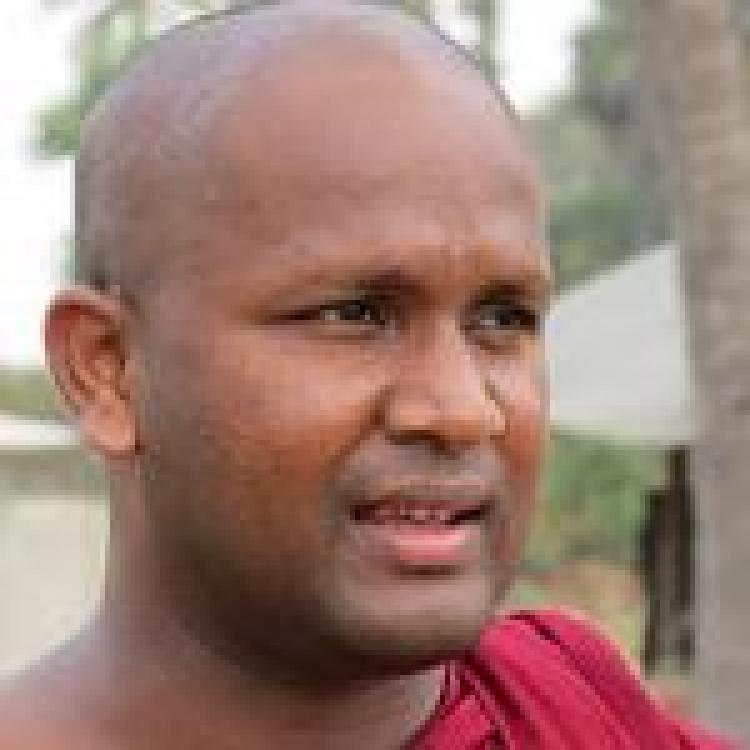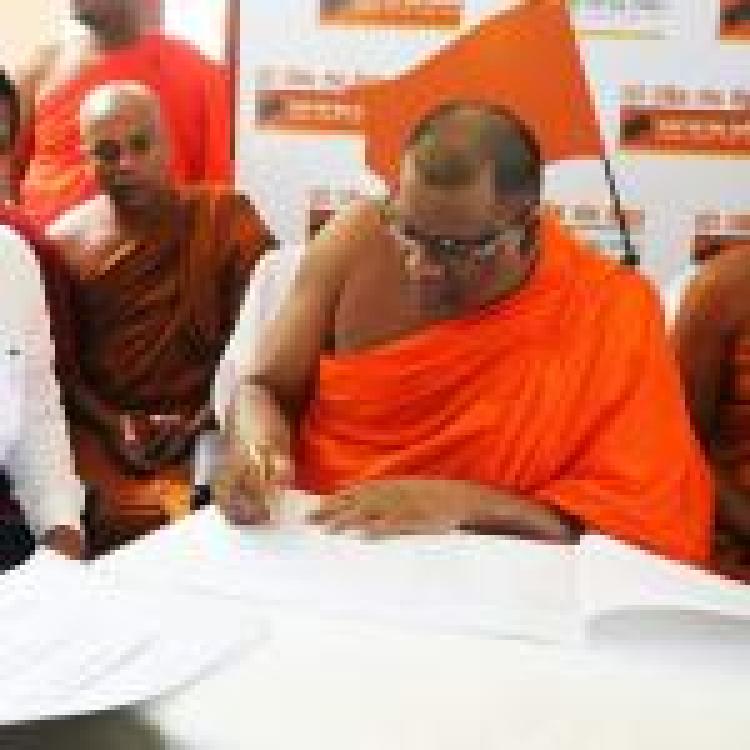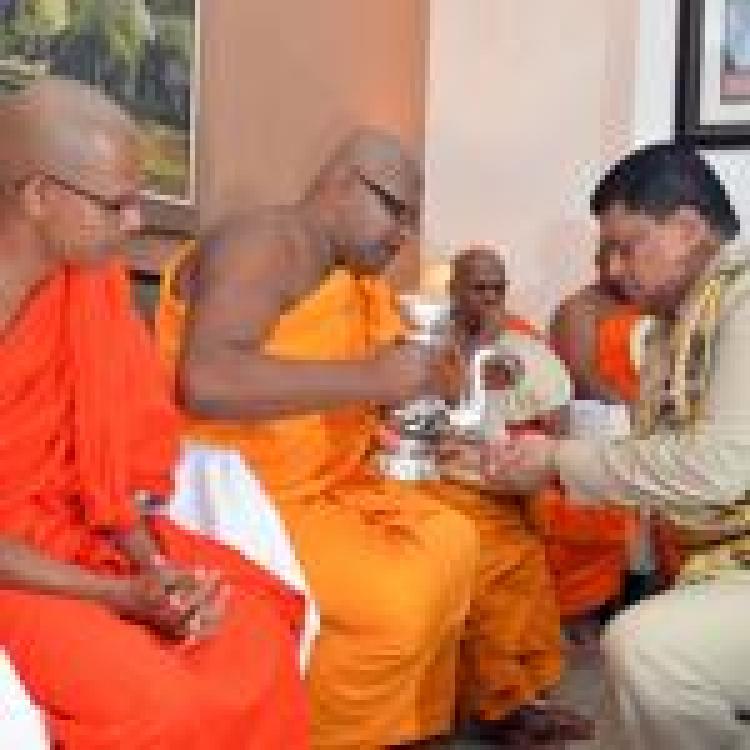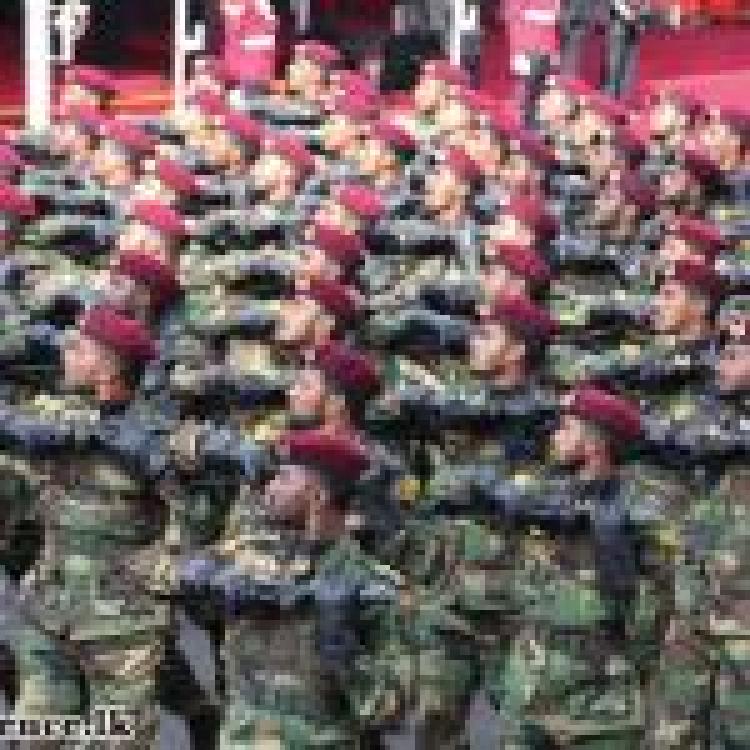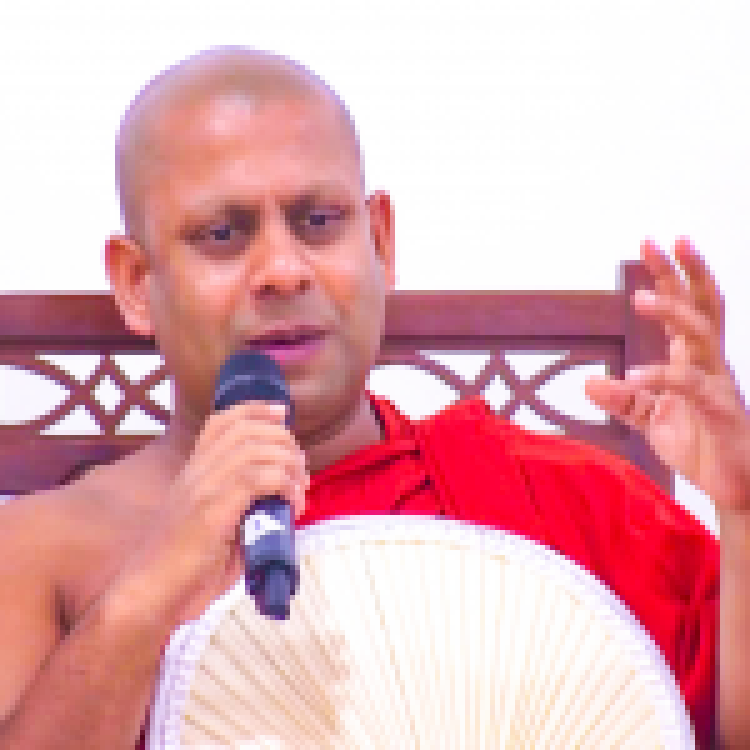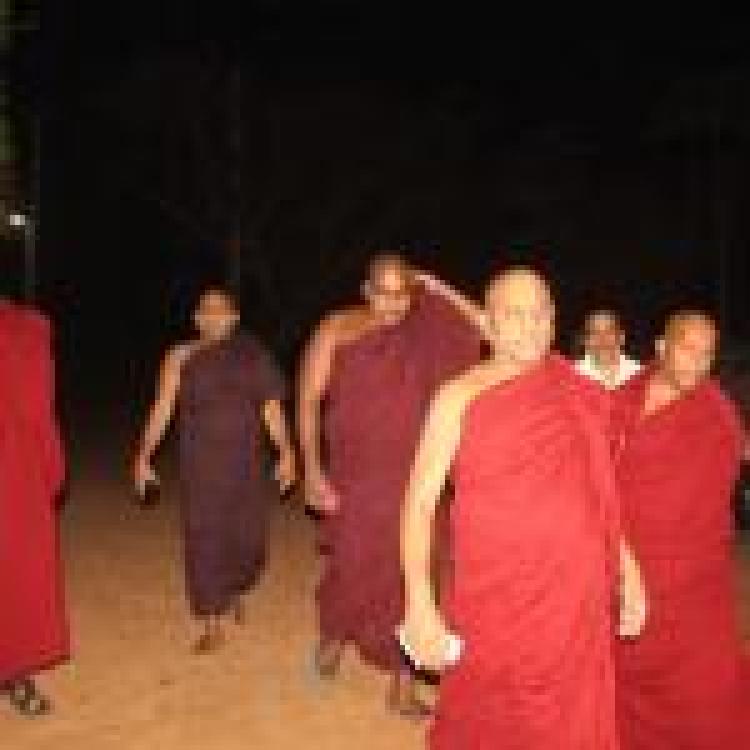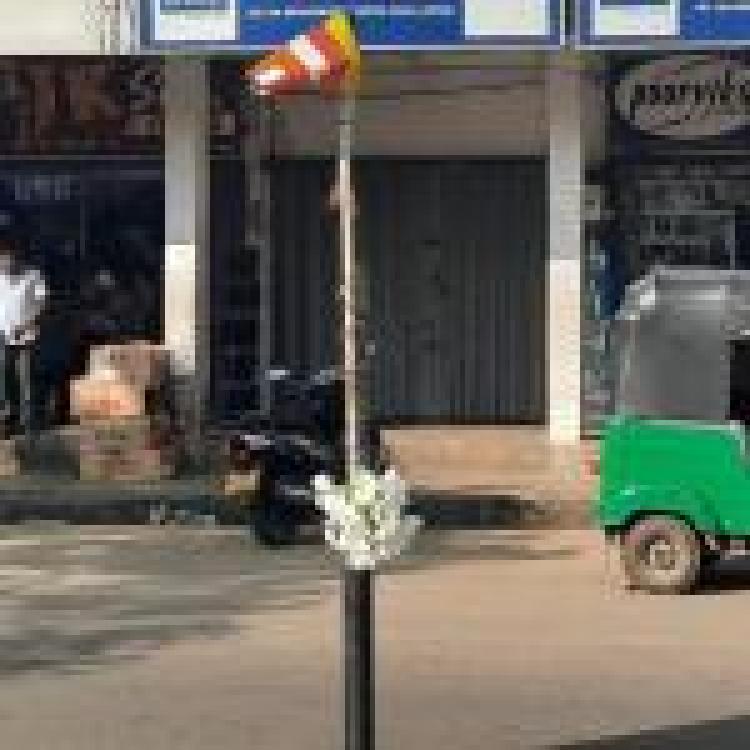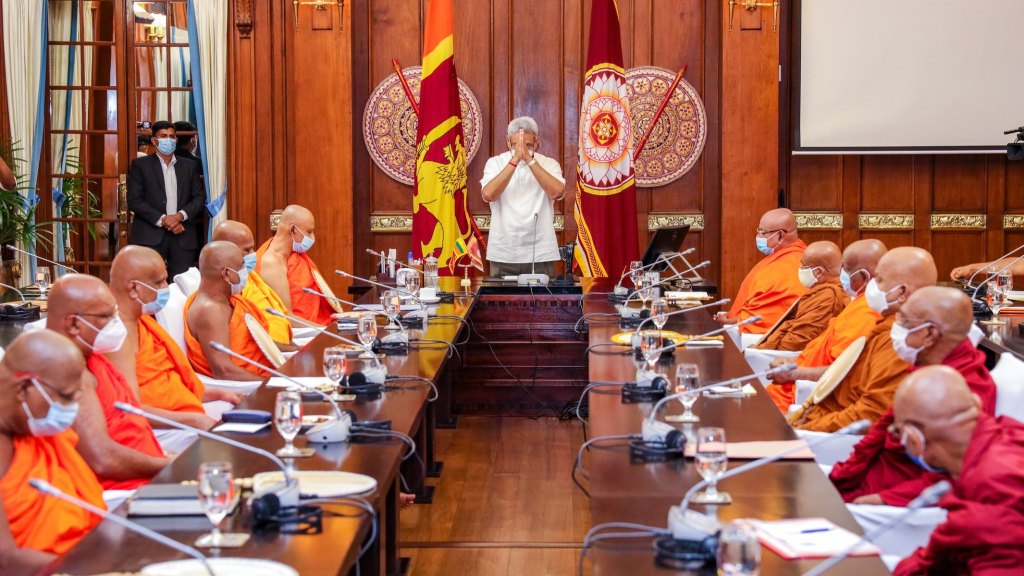
Sri Lankan President, Gotabaya Rajapaksa, met with the Buddhist Maha Sanga to discuss his task force, which is led by Defence Secretary, Kamal Gunaratne, and aims to protect archaeological sites in the East.
The establishment of a military task force to protected cultural sites has raised concerns over Sinhalisation as Buddhist viharas are being built upon the traditional Tamil homeland of the North and East without the consent of residents. There are also specific concerns over the exploitation of archaeology as a justification to expropriate Tamil owned land.
PEARL (People for Equality and Relief in Sri Lanka) have documented concerns over Sinhalaisation in the North and East. Pulmoaddai is one of several locations in the North and East which has witnessed dramatic demographic shifts as the military set up four navy camps, two army camps and a Special Task Force in Pulmoaddai, including on privately owned land.
Despite persist protests from local communities, the military has been effective in seizing the land in part through the aid of Buddhist monks such as Thilakawanse Nayaka whose expansionist policies extend beyond Pulmoaddai.
In 2018, the monk complained of local people encroaching on temple land and demanded more protection which enabled a greater military presence. Similarly, the Archaeological Department responsible for the region complained of Hindu temples being built and visited by locals. In response, the government granted only 25 of the 500 acres requested for building said temples whilst instead granting a full 500 acres to the Archaeological Forest Reserve.
Read more from PEARL here: Sinhalization of pulmoaddai
Similar complaints of "encroachment" on land for Buddhist shrines are being made by monks in Ampara where this new task force will monitor local activities.
Read more here: “Damages to national heritage will not be tolerated” – Sri Lanka’s Defence Secretary
The Buddhist clergy has commended the measures adopted by the President and insist upon the need for religious discourse due to the misconduct of certain monks. The President’s Media Division reports that the Sangha stressed a need to “rebuild the society which has gone chaotic”. They draw particular attention to the country’s issues of national security, the coronavirus response, and national education.
National Security
During this meeting, Rajapaksa stated that he would grant the vest the intelligence service and security forces full powers to deal with extremist threats to national security.
The Sangha welcomed this news and urged the President to implement a comprehensive policy to crack down on drug trafficking in Sri Lanka.
Human rights activists and civil society activists are deeply concerned over the increased military presence, especially within the North and East were security forces have been identified as having harassed and intimidated Tamil civilians and activists.
The TNPF have reported that they have been the victims of unwarranted surveillance and intimidation from the security forces. Members have also reported death threats issued by the military including one member who was warned that if she lit a lamp in remember of the Mullivaikkal massacre, that she would be shot.
Sri Lanka’s response to COVID-19
The Buddhist Sangha also applauded the state’s heavily militarised response to the current coronavirus pandemic whilst also condemning the opposition as “disgusting”. Specific media outlets were criticised for their coverage as they allege that they forced a rift between the Sangha and politicians.
Human rights activists have condemned the government’s heavy-handed response which has led to the arrest of over 60,000 people in Sri Lanka. Freedom of speech has also become a concern as the majority of people arrested will face a charge and those found to have spread false information on the virus may be imprisoned for two years.
The international community has raised concerns over the treatment of government critics and civil society actors which have faced intimidation and unwarranted arrests.
National Education
With respects to the national education policy, the Sanga alleged that those attempts have been made to remove literature and history from the school curricula in the past and that education must be made foremost priority.
Sri Lanka’s education system has increasingly come under scrutiny for a racial bias which teaches historical inaccuracies and promotes a Sinhala Buddhist narrative. In July 2019, Hill Country Development Minister Lakshman Kiriella, admitted to this educational bias as he alleged that Tamils and Muslims were portrayed as “foreign invaders” to the island.
Sri Lanka’s education policy has come under particular focus in the post-war years as scholars such as Professor Rachel Seoighe and Professor Kate Cronin Furman argue that the state has played an active role in crafting a hostile narrative the celebrates the defeat of terrorism whilst also silencing and “denying the suffering inflicted by the victors’ and ‘policing the memory of their victims”.
Read more here: Minister admits Sri Lanka history education racist
Read more from the President's Media Division.


